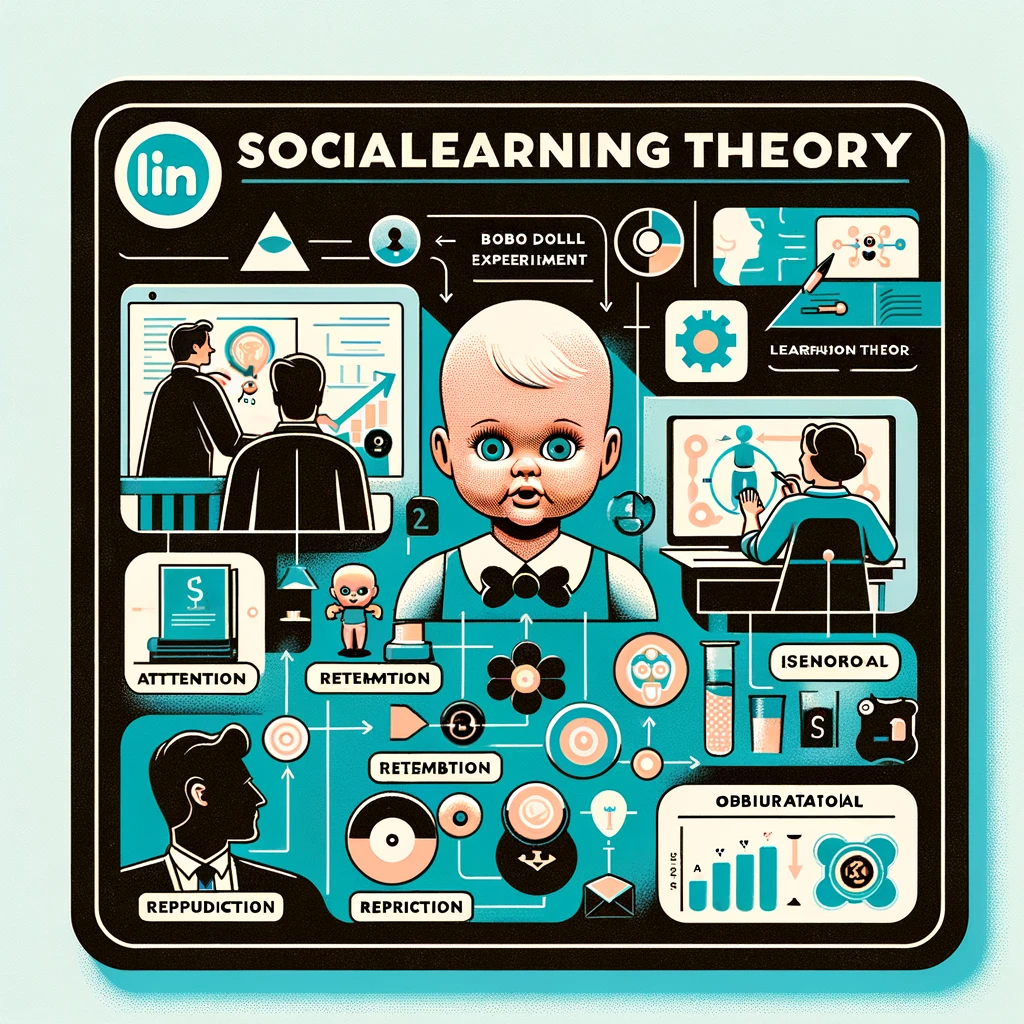Exploring Social Learning Theory
Social Learning Theory, developed by Albert Bandura in the 1960s, revolutionized our understanding of how people learn and develop behaviors. This theory emphasizes that learning occurs in a social context and can happen purely through observation or direct instruction, even in the absence of motor reproduction or direct reinforcement.
Bandura’s Experiment and Key Concepts
The most famous experiment illustrating this theory is Bandura’s Bobo Doll experiment (1961). In this study, children who observed an adult model behaving aggressively towards a Bobo doll were more likely to also show aggressive behavior towards the doll.
Key Concepts of Social Learning Theory:
- Observational Learning: Learning by observing others. This is more likely to occur if the model is seen as similar, successful, or admirable.
- Attention: The extent to which we focus on others’ behavior.
- Retention: Our ability to retain a representation of others’ behavior in memory.
- Reproduction: Our ability to reproduce the behavior.
- Motivation: The will to perform the behavior, which can be affected by observed consequences.
Applications in Various Fields
- Education: Tailoring teaching methods to encourage observational learning and using role models effectively.
- Parenting and Child Development: Parents serve as primary role models. This theory explains why children imitate their parents’ behaviors and attitudes.
- Media Influence on Behavior: Understanding how media exposure affects children and adults, such as the impact of violent television shows on aggressive behavior.
- Therapy and Counseling: Using role-playing or modeling techniques to teach clients new skills or behaviors.
Modern Perspectives and Critiques
While widely influential, Social Learning Theory has been critiqued for underestimating the importance of biological factors in learning and behavior. Critics also argue that it does not account for internal thoughts or unconscious motivations.
Further Reading
- “Social Learning Theory” by Albert Bandura
- “Cognitive-Behavioral Treatment of Borderline Personality Disorder” by Marsha M. Linehan
Conclusion
Social Learning Theory remains a key framework in understanding human behavior, providing insights into how societal, familial, and media influences shape our actions and beliefs.




